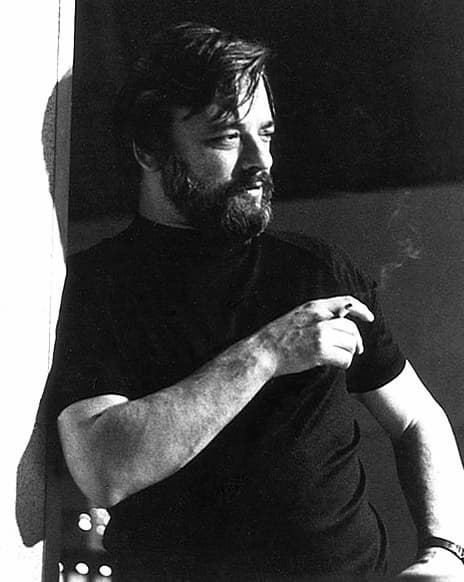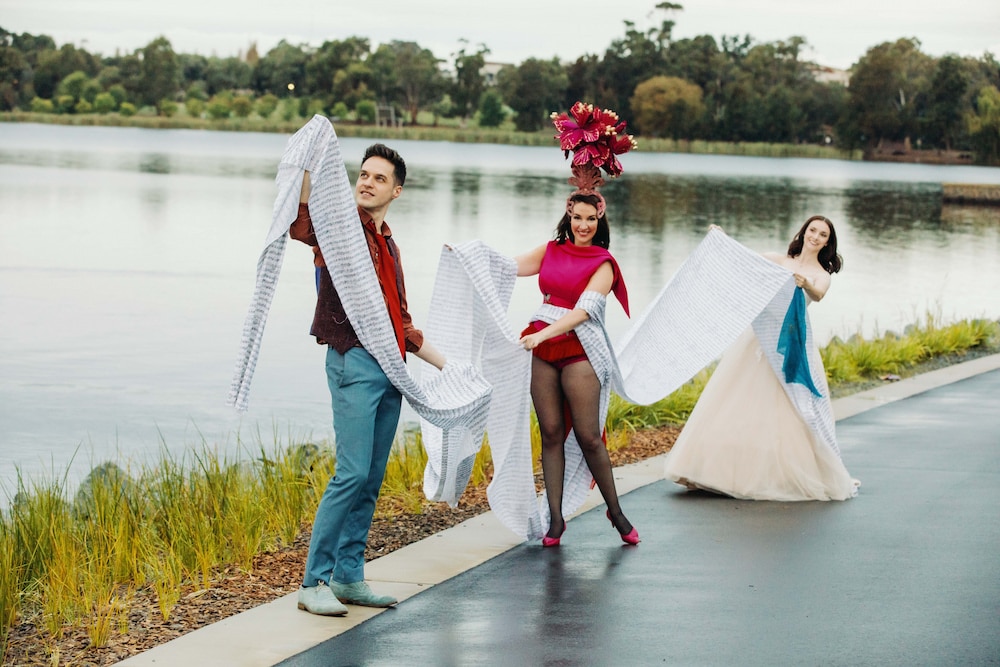A Sonnet for Sondheim, showing at the Belconnen Arts Centre later this month, is a love letter to the late Broadway giant, “a tribute to a lyricist and composer who changed the face of musical theatre”, and a love letter to performing, says director and actress-singer Lexi Sekuless.
“Love is a massive driver for anyone in the creative industries, but definitely those in live performing arts.”
Stephen Sondheim’s musicals deal with the idea of love and why people struggle through, Ms Sekuless explains.
His bittersweet comedies examine the problems of connection and being vulnerable, obsessive love and regret, the difficulty of loving the wrong person or losing the right one, and the choices people make to be happy (or resigned) – wrapped up in scintillating wordplay and music that can be shimmeringly Impressionistic or popular and catchy at will.
Tributes poured out from across the world when he died in November: Sondheim was the Shakespeare of musical theatre; he had brought a new sophistication and depth to the form. To his fans, he was, as he wrote in a self-satirical 2010 song, God. But audiences used to the simpler, lighter fare of Rodgers & Hammerstein (his mentor) or Andrew Lloyd Webber’s blockbusters sometimes found Sondheim too clever by half, too difficult, too cold. There weren’t enough tunes that went “bum-bum-bum-di-dum”. Many were more successful in revival than in their first runs.

As well as New York urban comedies (Company, 1970) or elegant Swedish romantic comedies (A Little Night Music, 1973), he wrote musicals about gunboat diplomacy and the Westernisation of Japan (Pacific Overtures, 1976), pointillist art (Sunday in the Park with George, 1984), or shooting presidents, America’s gun obsession, and the dark side of the American dream (Assassins, 1990), while his most famous work, Sweeney Todd (1979), is a gory black comedy about cannibalism and revenge.
He experimented with form and structure: there are kabuki musicals and revues; Merrily We Roll Along (1981) starts at the end of the story and moves backwards in time in each act; Into the Woods (1987) is a fairy story that goes off the rails when the narrator is killed. His last work would have been based on the films of the Spanish surrealist director Buñuel.
Canberra audiences will hear songs from all but four of Sondheim’s musicals, performed by five soloists – Sekuless and her brother Tim, Jay Cameron, Katerina Smalley, and Martin Everett – accompanied by pianist and impresario Carl Rafferty.
(No Sweeney Todd, unfortunately, Ms Sekuless said. In passing, the only love song in Assassins is the masochistic Unworthy of Your Love, sung by the man who shot Ronald Reagan.)
Instead, there are popular pieces like Something’s Coming from West Side Story (1957), which established Sondheim as a librettist; Broadway Baby and the torch song Losing My Mind from Follies (1971); meditations on the creative process from Sunday in the Park, and the sublime ensemble that closes each act; the earthy, sexually assertive Miller’s Son from Night Music; a jazzy trio from Company; and the princes’ histrionic duet, trying to outdo each other in Agony, and the wondering Giants in the Sky from Into the Woods.
There are also rarities. The show opens with an ensemble from the Aristophanean Frogs (1974, revised 2004), first performed in the Yale swimming pool. There are songs from the surrealist Anyone Can Whistle? (1964), a flop but a cult favourite; Merrily; and the late, unpopular Italian melodrama Passion (1994). There is even a melancholy piece from the 1966 TV musical Evening Primrose.
The Sondheim songs are complemented by English and American poetry: sonnets by Shakespeare and a speech from Antony and Cleopatra; Elizabeth Barrett Browning’s Sonnets from the Portuguese, “an amazing set of love songs” she wrote during her courtship with Robert Browning; and Emily Dickinson’s Fame.
“I’m really fascinated by anything to do with heightened language,” Ms Sekuless said. “I love the closeness between poetry, verse, and music.”
For performers, too, mastering Sondheim’s lyrics is excellent training in vocal technique, she believes.
“Once you can dissect and handle highly organised language, everything becomes easier,” Ms Sekuless said – from a bad TV script to the plays of Caryl Churchill or Tom Stoppard.
“Once you can analyse text, you realise what the writer is doing, and understand how you need to find the rhythms in order to find the character and tell the story.”
A view shared by London’s Royal Academy of Dramatic Art, which (Broadway World reported) called Sondheim’s “songs … much the cornerstone of our singing training as Shakespeare’s poems and plays are the foundation of our text work”.
A Sonnet for Sondheim: The Theatre, Belconnen Arts Centre, Wednesday 29 June – Saturday 2 July, 8pm. $45 adult and $40 concession. For more information: www.belcoarts.com.au/sonnet-sondheim/



